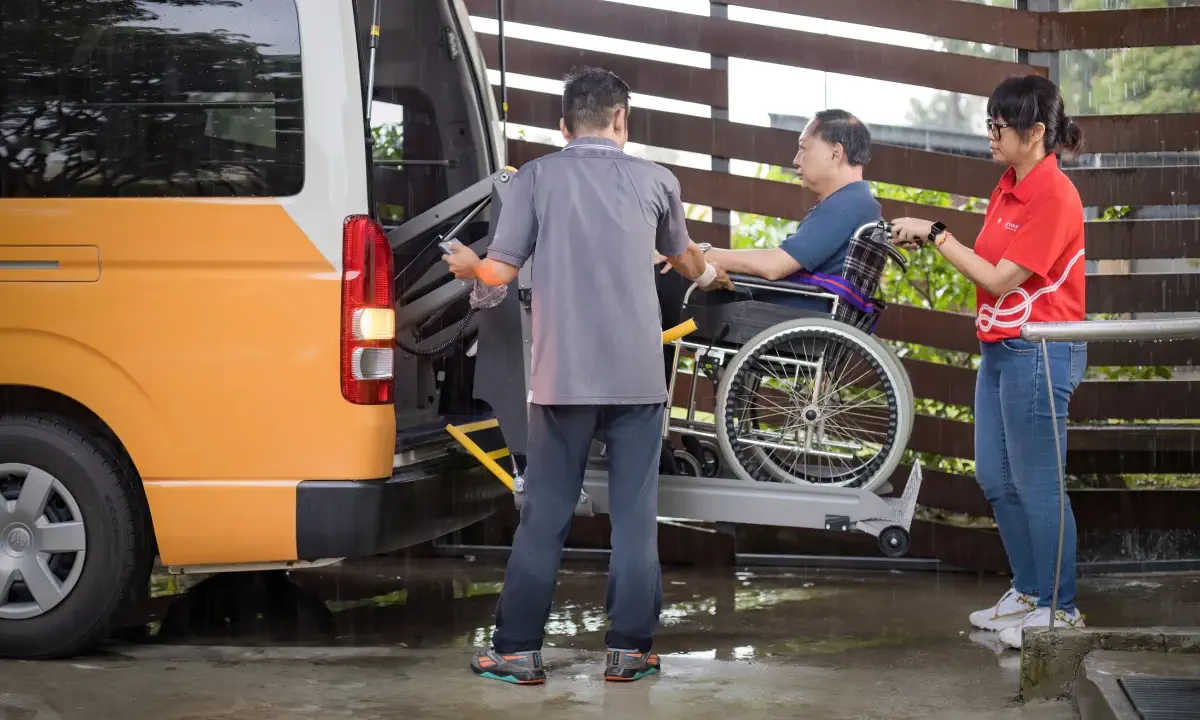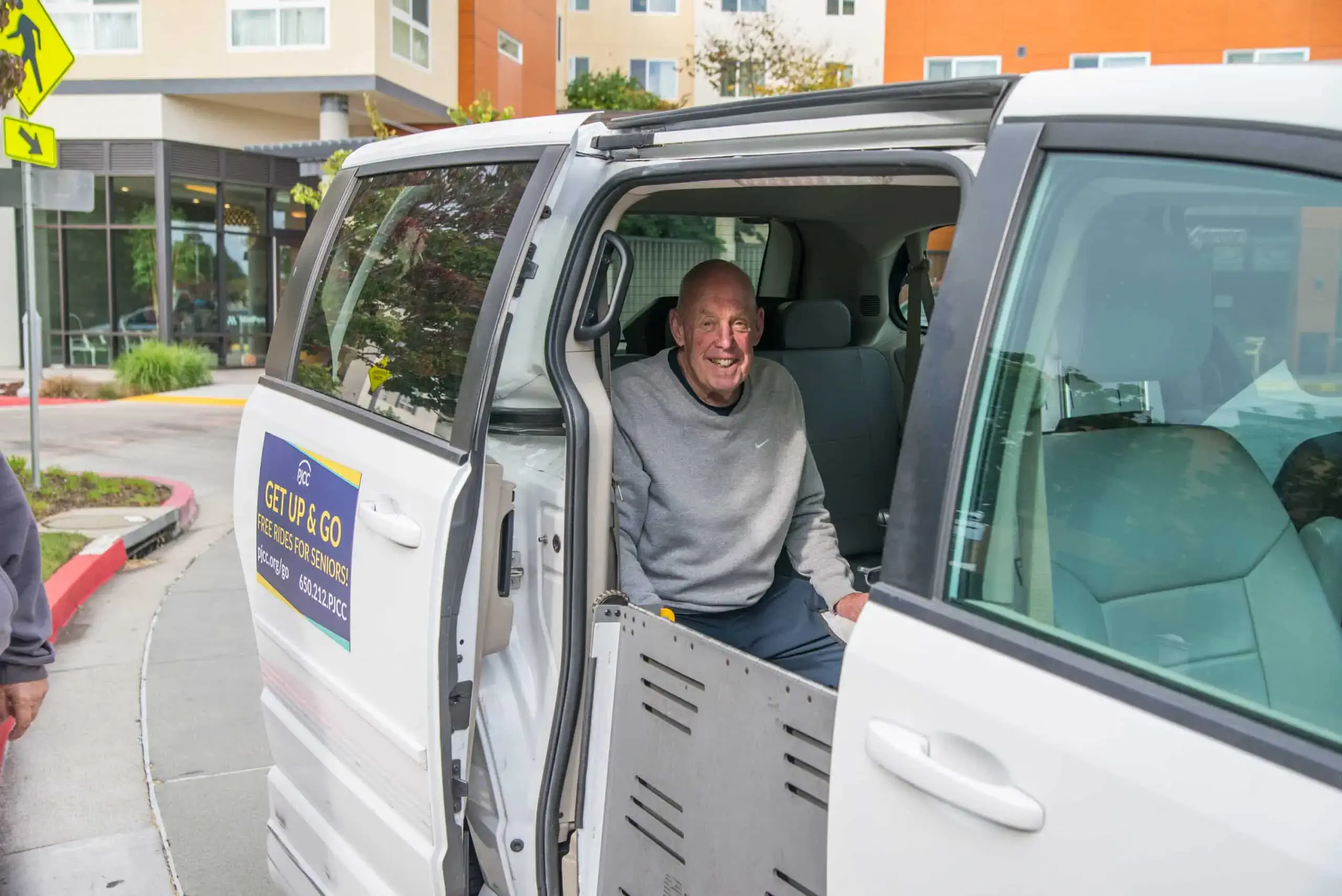
Finding Transportation for Seniors to Doctor Appointments
Finding transportation for seniors to doctor appointments is an essential service that combines safety, reliability, and affordability. This service is a critical support that maintain independence, ensure timely medical care, and reduce stress for both older adults and their caregivers. As health needs evolve and mobility becomes more challenging, having trusted options—from government programs and community services to private rides and volunteer networks—can make a significant difference in adherence to treatment plans and overall well-being.
How to be confident driving? In this blog from the Human Health Mag website, we intend to explore practical strategies, key considerations, and step-by-step approaches to secure safe, affordable, and convenient transportation for seniors.
Why Finding Transportation to Doctor Appointments Matters for Seniors?
What are the best options for transportation for seniors who can’t drive? First o all learn How to find reliable in-home care for parents? Like this issue, securing reliable transport to medical visits is essential for seniors because it directly supports timely care, treatment adherence, and overall health stability. Without dependable options, missed or delayed appointments can lead to worsened conditions, higher risk of emergency care, and unnecessary headaches for both seniors and their caregivers. Access to suitable transportation also helps maintain independence and reduces social isolation, which is linked to better mental and physical well-being. Key reasons that finding transportation for seniors to doctor appointments is critical:
- Ensures timely access to care: Regular appointments enable early detection of health issues, timely medication management, and ongoing monitoring of chronic conditions. When transportation is unreliable, the likelihood of missed visits increases, potentially compromising health outcomes.
- Improves treatment adherence: Consistent attendance supports prescribed care plans, increases the effectiveness of therapies, and reduces the need for acute interventions.
- Supports safety and peace of mind: Professional transportation services offer appropriate accommodations for mobility limitations and medical needs, reducing the risk of falls or injuries during travel and giving families confidence about their loved one’s safety.
- Mitigates financial and logistical burdens: While some services incur costs, many communities offer subsidized or free options through public programs, non-profits, or healthcare organizations, helping seniors access essential care without sacrificing other necessities.
- Reduces caregiver stress: When reliable transport is available, caregivers spend less time arranging rides and worrying about logistics, enabling them to focus on other aspects of caregiving and personal well-being.

Common Transportation Options to Explore for Transport Seniors to Medical Appointments
How to transition a parent to a nursing home? Common transportation options for seniors attending doctor appointments or nursing home include a variety of services designed to match different mobility levels, geographic locations, and financial needs. These options help ensure older adults get to their medical visits safely, reliably, and with necessary support. Selecting the right option depends on the senior’s mobility, destination, budget, and whether they require personal assistance during travel.
1- Non-Emergency Medical Transportation (NEMT)
NEMT services cover rides for patients who do not require emergency care but need assistance getting to medical facilities. These vehicles are equipped with accessibility features such as wheelchair ramps and lifts, and services include:
- Ambulatory transportation for seniors who can walk or need minimal help.
- Wheelchair transportation for those needing accessible vehicles.
- Stretcher transportation for non-ambulatory individuals.
- Courier services for the delivery of medical supplies or prescriptions.
2- Paratransit and Door-to-Door Services
Programmed shuttle or van services for those who cannot use standard public transit due to disabilities or mobility issues. Paratransit operates as a door-to-door or curb-to-curb ride service pick up individuals with mobility limitations at the curb and travel directly to medical facilities. These often require advance scheduling and eligibility verification.
3- Volunteer Driver Programs
Volunteer-based and nonprofit programs, often run by local councils on aging, local charities, faith-based groups, non-profits, or community groups, match seniors with vetted drivers for medical appointments. These volunteers typically use their personal vehicles and offer rides within local communities and sometimes to out-of-town clinics.
4- Public Transit Discounts and Specialized Senior Services
Many cities offer reduced-fare or free rides for seniors on public transportation such as buses, subways, light rail, or paratransit services. Some systems, like the MBTA, offer up to 50% discounts and operate in conjunction with specialized shuttles or accessible buses designed for older riders. Availability and eligibility vary by location, so provide local resources and how-to guides for applying.
5- Private Rides and On-Demand Services
There are private companies specializing in senior medical transport with trained professional drivers. These services offer flexible scheduling, door-to-door service, and vehicles equipped for medical or mobility needs. Ride-hailing options (with or without assistance) can be convenient for same-day appointments, especially when other options are limited. Some programs offer senior-friendly arrangements (e.g., extra time, assistance at pickup).
6- Specialized Shuttle Services
Certain cities operate senior-specific shuttle services (e.g., Age Strong Shuttle) that provide free, door-to-door rides for medical appointments. These shuttles accommodate mobility aids and serve residents aged 60 and up.
7- Home Care Agency Transportation
Some home health agencies include transportation as part of their care packages, providing personalized assistance and travel companions for medical or therapy appointments.
8- Hospital-affiliated and clinic transportation
Some hospitals coordinate patient transport or offer shuttle services for appointments. Some other health systems provide patient transportation services or partner with third-party vendors to support patients with transportation needs.
9- Government and social services
Programs targeting low-income seniors or those with disabilities may provide transportation subsidies or vouchers.

How to Assess and Select the Best Transportation Option for Seniors to Doctor Appointments
Assessing and selecting the best transportation option for seniors involves understanding their specific health, mobility, and logistical needs, then matching those with available transportation services to ensure safety, reliability, and comfort.
- Assess the Senior’s Needs: Mobility level, need for medical supervision, distance to appointments, and availability of a familiar driver. Determine if the senior can walk unassisted, uses a wheelchair, or requires medical supervision during transport. Consider how often they have appointments and the distance to healthcare facilities, which affects the type and cost of transportation. Identify if the senior needs help getting to and from the vehicle, help during travel, or accompaniment to the appointment.
- Check Eligibility and Coverage: Confirm what services are available in the area (government or non-profit programs like paratransit, non-emergency medical transportation (NEMT), and volunteer driver services, private ride services, medical taxis, or home care agencies offering transportation, and etc.), required documentation, eligibility criteria for subsidized or specialized services, such as age, income level, or disability status, and whether costs are covered by Medicare, Medicaid, private insurance, or local programs.
- Prioritize Safety and Comfort: Look for vehicles with ramps or lifts, appropriate seating, trained staff, and privacy for medical conversations.
- Plan Logistics and Scheduling: Schedule rides in advance to avoid last-minute cancellations or delays. Confirm pick-up and drop-off times and locations to match appointment schedules. Consider backup transportation options for emergencies or cancellations.
- Consider Accessibility to Multiple Destinations: Ensure options can handle primary care, specialty visits, and allied health appointments (e.g., dialysis, physical therapy).
- Seek Recommendations and Reviews: Ask healthcare providers, senior centers, or caregivers for trusted transportation service recommendations. Review user feedback or testimonials regarding reliability and driver professionalism.
- Trial and Adjust: Arrange a test trip to assess the service’s quality, driver behavior, and vehicle condition. Adjust transportation plans as needs evolve or based on feedback after initial rides.
By carefully evaluating the senior’s mobility, preferences, and available resources, caregivers and seniors themselves can secure transportation that ensures timely, stress-free access to healthcare appointments while preserving independence and dignity.
Practical Steps to Take Now for Finding Transportation to Doctor Appointments Matters for Seniors
- List all upcoming medical appointments including date, time, location, and any special mobility or medical support needed.
- Assess the senior’s mobility level, need for assistance, and preferred mode of transport (e.g., wheelchair-accessible vehicle, companion support).
- Contact local aging services, community centers, or social services to inquire about available transportation programs like paratransit, volunteer driver programs, and non-emergency medical transport (NEMT).
- Determine if the senior qualifies for subsidized services or if insurance covers transportation costs. Verify documentation required for service enrollment.
- Ask clinics or hospitals about transportation assistance programs, shuttles, or partnerships with local transport services.
- Explore private medical transport companies or ride services offering senior-friendly vehicles and driver assistance, considering cost and scheduling flexibility.
- Schedule trial rides with providers to assess comfort, safety, and reliability before committing to regular use.
- Identify alternative rideshare or taxi services as contingency plans in case the primary transportation falls through.
- Book rides well ahead of appointment days and confirm pick-up and drop-off details to avoid delays.
- Keep phone numbers handy for provider contacts and ensure clear communication about any changes or cancellations.
- If you’d like, share your location and any mobility or medical needs, and this can be translated into a tailored list of transportation options, eligibility steps, and contact points for your area.
- Ensure all involved know the available options, how to book rides, and what to do if a ride is late or canceled.
By following these actionable steps, seniors and caregivers can proactively secure dependable transportation for doctor visits, reducing stress and promoting consistent healthcare access.
Concluding Remarks
Ensuring reliable transportation to doctor appointments is a vital part of maintaining seniors’ health, independence, and well-being. With various options available—from non-emergency medical transport and paratransit to volunteer drivers and private services—it is possible to find solutions tailored to individual needs that prioritize safety, comfort, and timeliness. Taking practical steps for finding transportation for seniors to doctor appointments such as assessing mobility requirements, researching local programs, and planning ahead can make a significant difference in reducing missed appointments and related health risks.
Your experiences and insights are invaluable—please share your comments or questions about finding and using transportation for senior medical appointments to help inform and support others facing similar challenges.

Frequently Asked Question
What types of transportation services are available for seniors attending medical appointments?
Seniors can access a variety of services including non-emergency medical transportation (NEMT), paratransit, volunteer driver programs, specialized shuttles, private medical taxis, and community ride services tailored for mobility and medical needs.
Can caregivers or family members accompany seniors during transportation to appointments?
Most transportation services allow seniors to bring a caregiver or family member along. It’s best to confirm specific policies with the provider in advance to ensure space and safety compliance.
What should I ask before booking a senior transportation service?
Confirm eligibility, service area, wheelchair accessibility, door-to-door assistance, driver training, cancellation policy, and costs.
How far in advance should I schedule rides for medical appointments?
Paratransit and some nonprofit programs prefer 1–3 days’ notice; hospital programs may require more lead time, depending on demand.
Are there free or low-cost options for seniors?
Yes, many communities offer senior transit discounts, volunteer driver programs, and hospital transportation services. Eligibility and coverage vary by location.
